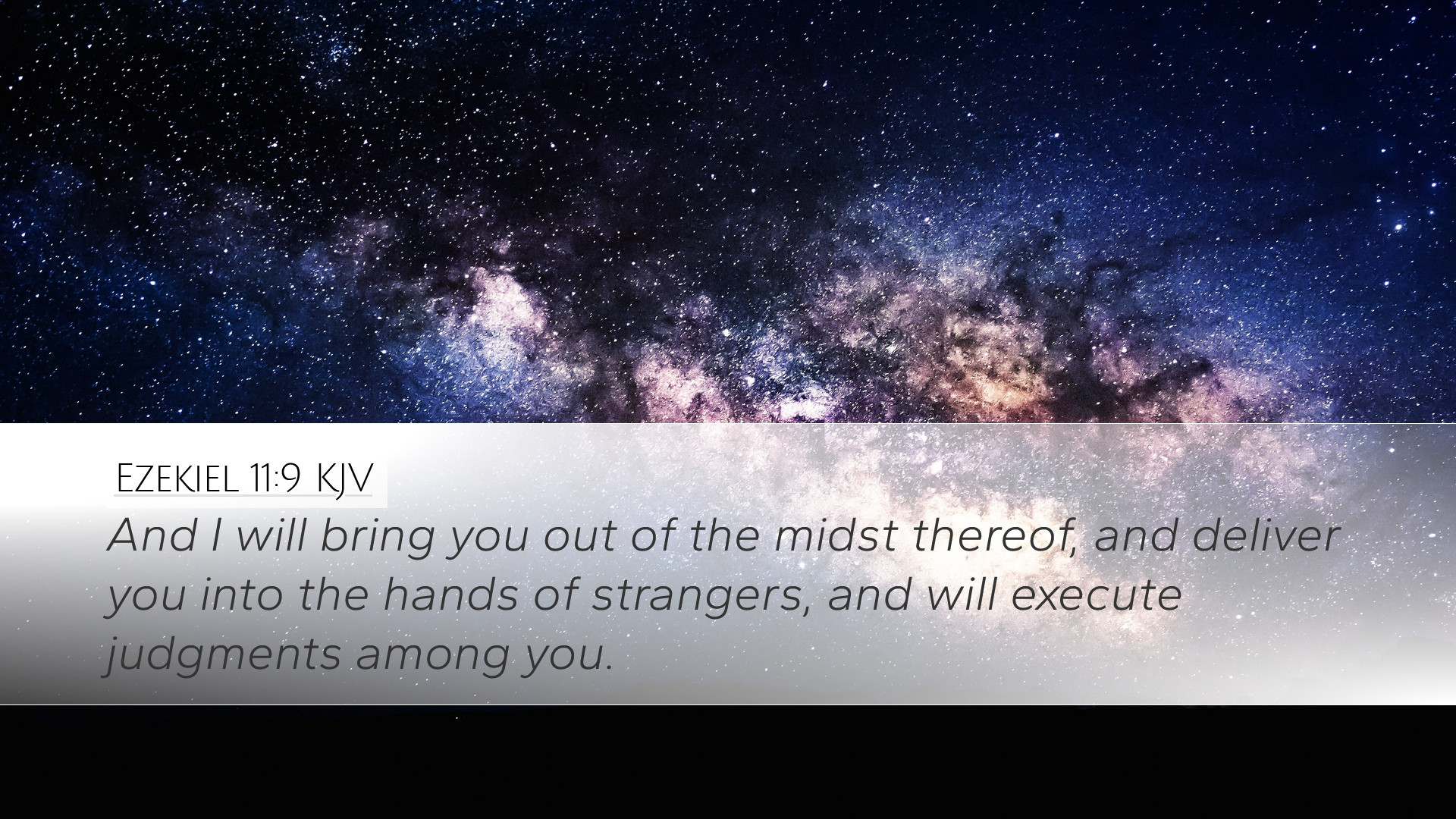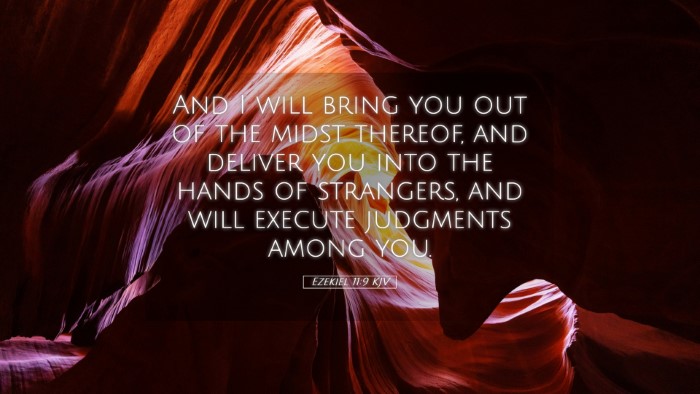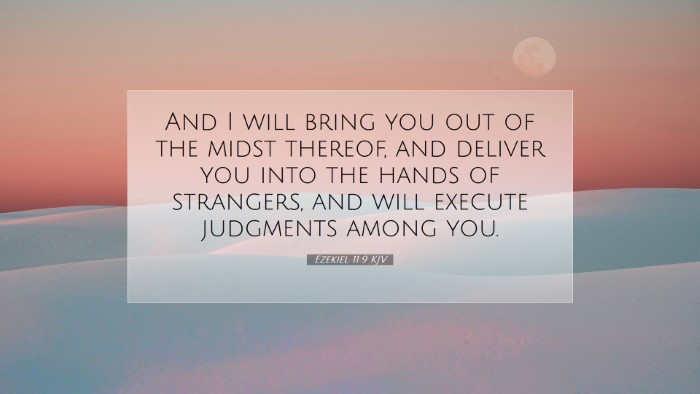Ezekiel 11:9 Commentary
Bible Verse: "And I will bring you out of the midst thereof, and deliver you into the hands of strangers, and will execute judgments upon you."
Contextual Analysis
The book of Ezekiel is characterized by its prophetic visions and symbolic acts that convey God's messages of judgment and restoration. Chapter 11 focuses on God's judgment against the leaders of Jerusalem, addressing the situation of the captives in Babylon. This particular verse encapsulates a significant moment in God's dealings with His people, emphasizing themes of deliverance, judgment, and consequence.
Commentary Insights
Matthew Henry's Perspective
Matthew Henry highlights the gravity of divine judgment conveyed through Ezekiel. In this verse, the phrase "bring you out of the midst thereof" suggests a divine separation from the sinful influences of Jerusalem. Henry emphasizes that God's actions stem from His holiness, requiring that sin be addressed decisively.
- Judgment and Deliverance: Henry notes the duality of God's outcomes—wherein He delivers His people from false security yet simultaneously brings them into accountability.
- Accountability to Strangers: To be delivered into the hands of strangers indicates a divine method of correction, where God's people are subjected to foreign powers to learn humility and repentance.
Albert Barnes' Commentary
Albert Barnes provides an explanation of the consequences of idolatry and rebellion against God. In his view, this passage illustrates the inevitability of divine judgment following persistent disobedience.
- Execution of Judgments: Barnes states that the "judgments" executed by God serve both as a punishment and a means of purification for His people, illustrating the important theological principle that God disciplines those He loves (Hebrews 12:6).
- Foreign Rule as Divine Strategy: Barnes stresses that the deliverance into "the hands of strangers" serves as a profound lesson that one’s external circumstances are often reflective of internal spiritual states.
Adam Clarke's Contribution
Adam Clarke elaborates on the concept of exile and the spiritual implications associated with it. He posits that the resulting exile was not merely a geopolitical consequence but had deep spiritual ramifications grounded in the covenant relationship between God and His people.
- Exile as Disruption: Clarke underscores the view that being cast among strangers was a disruption of their identity as God’s chosen people, which would serve as an impetus for repentance and eventual restoration.
- Call to Repentance: Clarke implies that these judgments called for true transformation, emphasizing repentance as essential for returning to God and experiencing His favor once more.
Theological Implications
This verse prompts reflection on the nature of God's judgment and mercy. Throughout Scripture, God’s judgments are often accompanied by a plea for repentance and return. The commentary insights suggest that God’s purpose is to realign His people with His holiness, and the role of judgment serves a corrective function.
- Sovereignty and Justice: God is portrayed as sovereign, executing justice while simultaneously offering grace to those willing to return to Him.
- God's Holiness: The consequences of the people's actions reveal God's commitment to holiness, necessitating judgment against sin while always holding out the hope of restoration.
Meditation and Application
This scripture invites deep introspection regarding how today’s believers respond to God’s guidance. Pastoral leaders, students, and theologians are called to consider how corporate behavior can lead to consequences that disturb spiritual communion with God.
- Invitation to Reflection: As Christians today, we must evaluate whether we are living in ways that honor God, avoiding the pitfalls of idolatry or disobedience.
- Embrace of Grace: The ultimate reminder is that God's judgment is not without a pathway to grace. The exilic experience becomes a point of return—a call to embrace God’s sustaining love and become vessels of His righteousness in a world filled with disarray.


